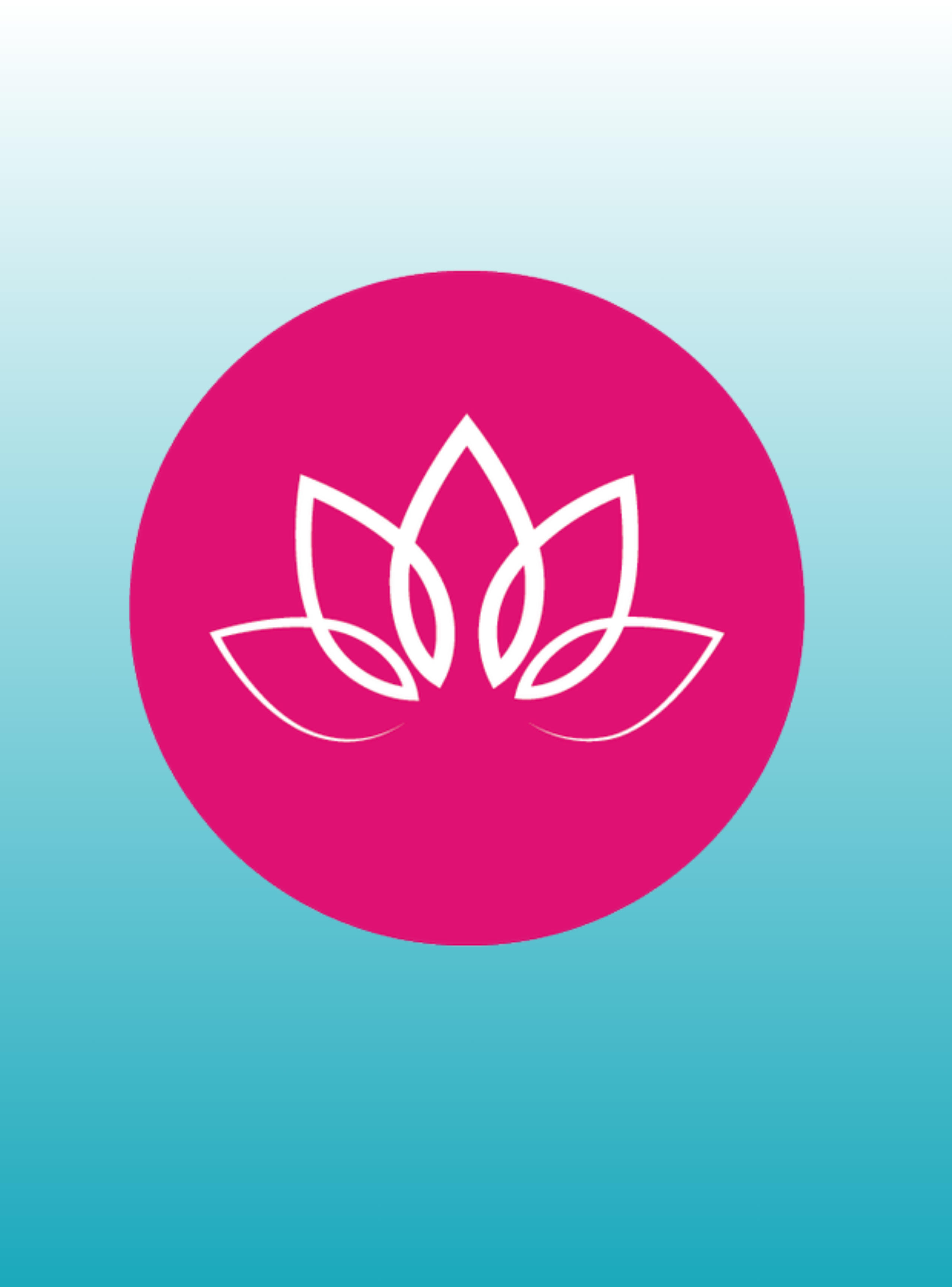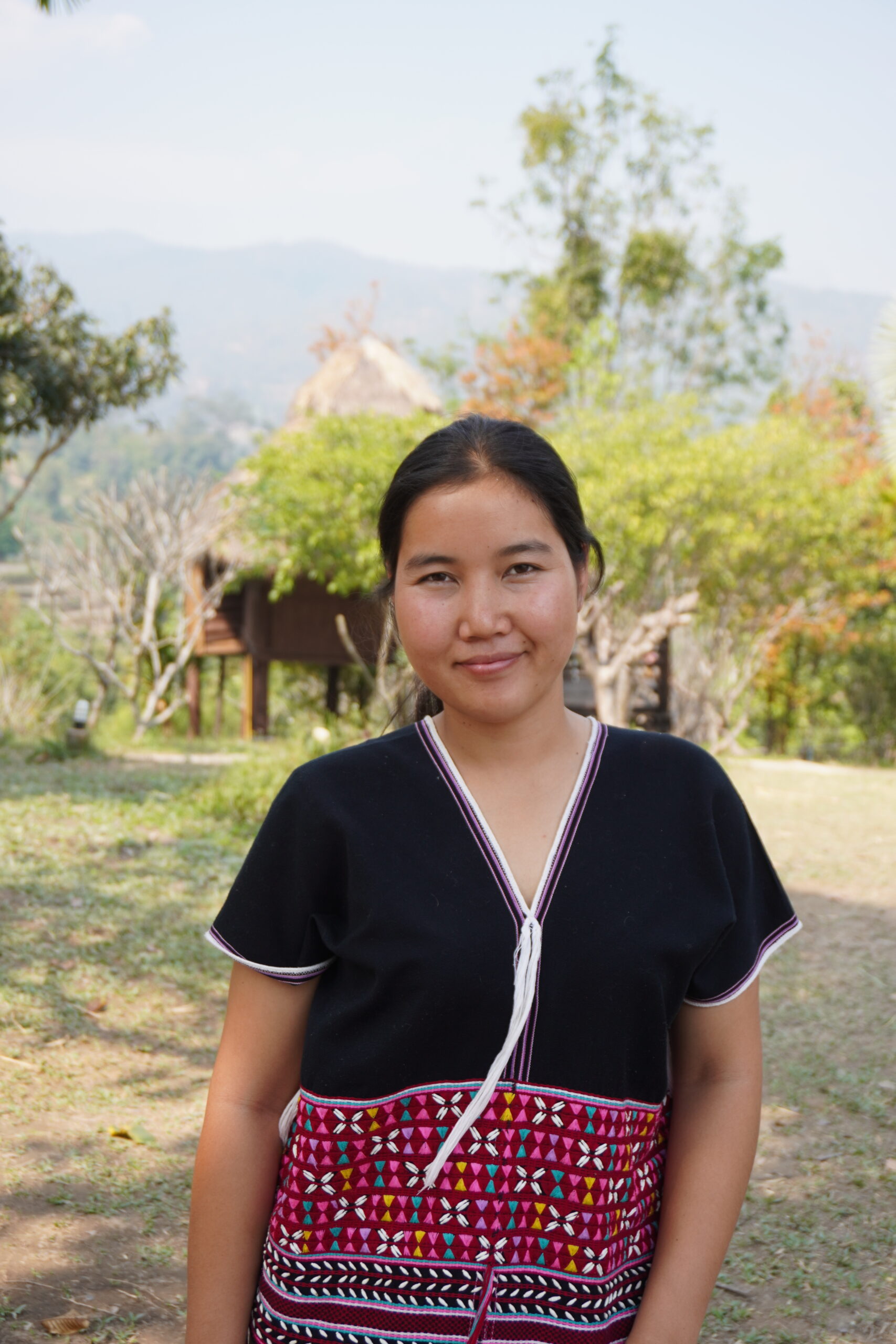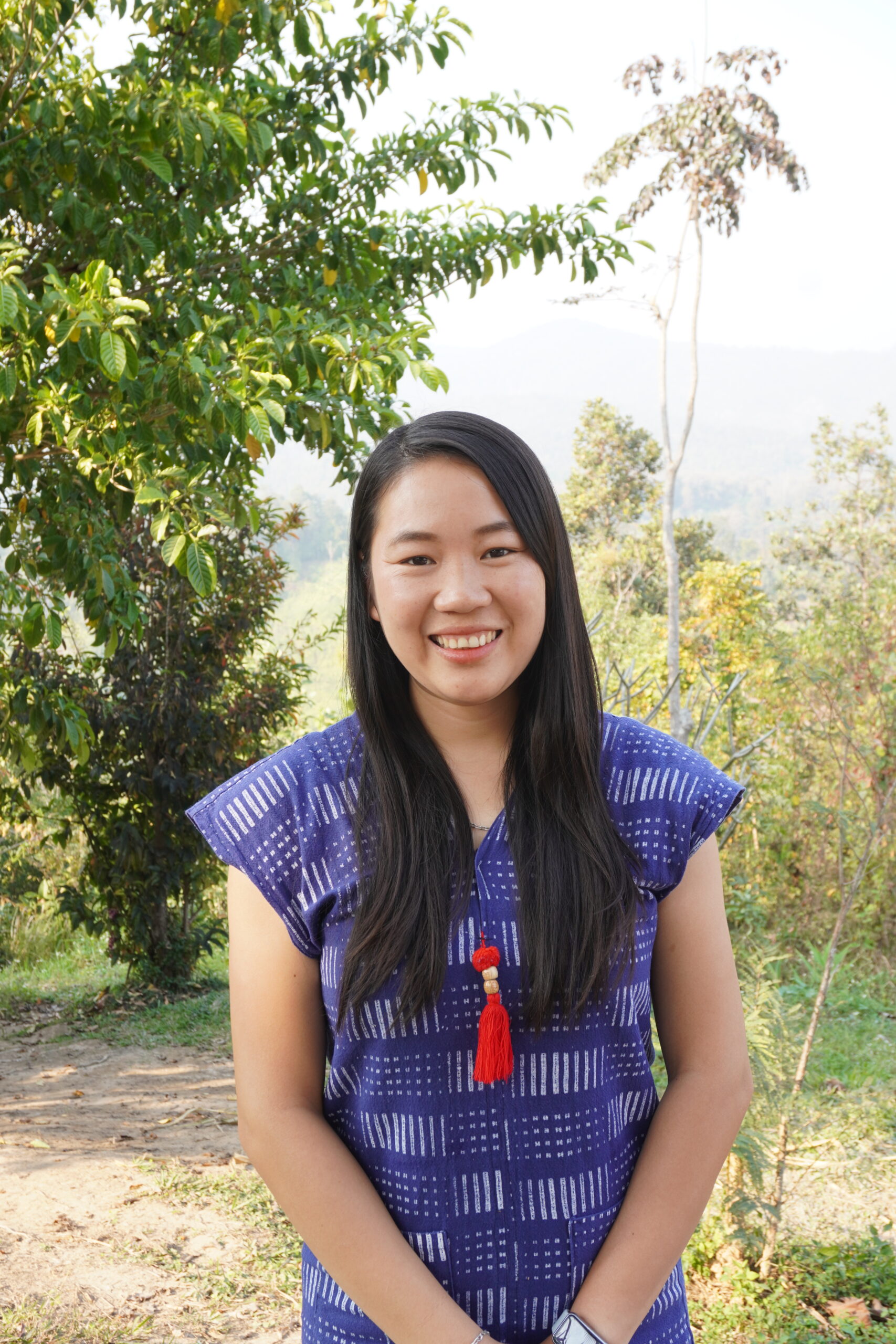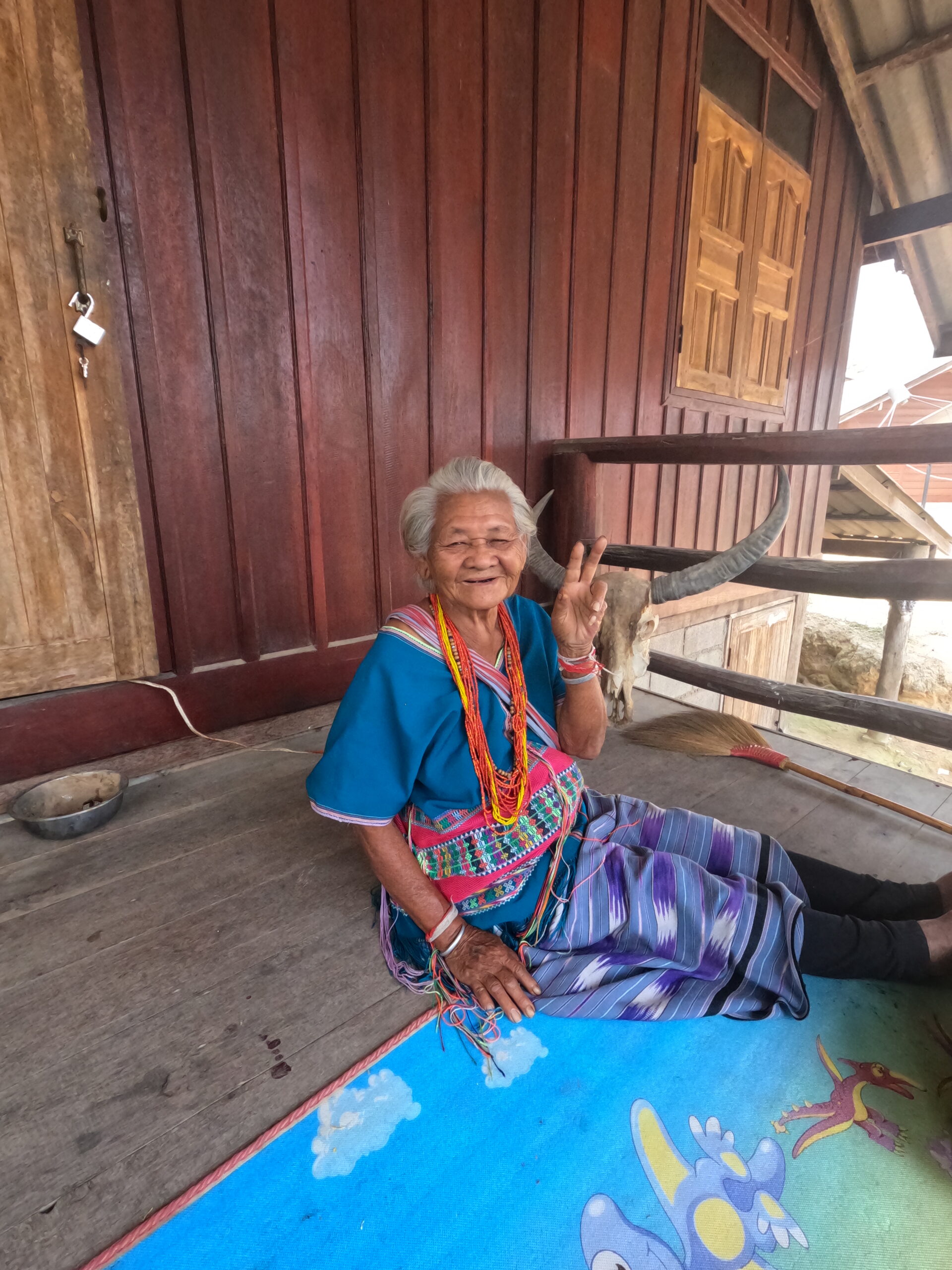“I want people to not be narrow minded when they don’t understand.”
Win is a staff member at Daughter’s Rising. Originally one of their students, Win has an inspiring story, incredible insight, and beautiful heart.
**DISCLAIMER: this interview has been translated, transcribed, and condensed for clarity purposes. The final article was reviewed by the Daughter Rising team to ensure accuracy and integrity of the original interview was kept. Additionally, an alias and AI generated photo was used in order to protect the privacy and safety of her and her family.
Tell us a bit about yourself!
I am Win and I work at Daughters Rising as a program director.
How did you get involved with Daughter’s Rising?
I was a Daughter’s Rising student with one of their scholarships. I got a full scholarship from Bangladesh Asian University for Women for tuition, but it didn’t cover my living expenses. I was having financial difficulty during my studies and got to know about Daughters Rising through a friend who got a scholarship from them. I researched it, applied, and got four years of living expenses covered.
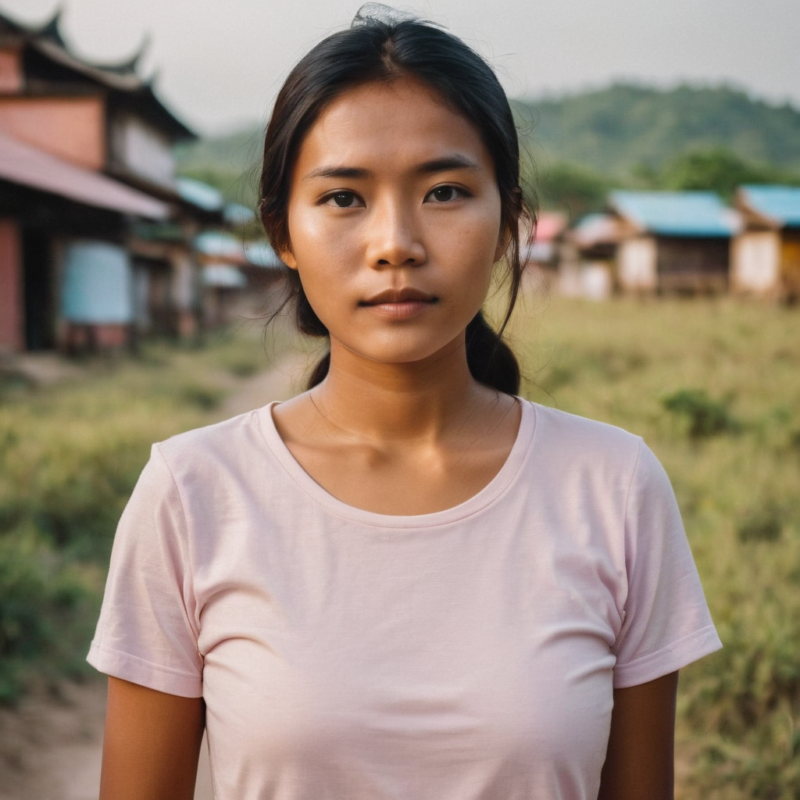
How did you end up in Thailand?
My family and I moved to Thailand in 2008 when I was 14 years old. My father had retired from his job working for the government. Though he got a pension, we had to return our housing to the government. That same year my mom fell very sick with diabetes, Her insulin was very expensive and my mom passed away when I was 14. My parents were about 20 years apart in age, so when she passed at 40 and my dad was 60, we didn’t know what to do. He was too old to work. Me and my three siblings were in school, but it was very expensive to go to school in Myanmar. It was then that someone told us about life on the border. If we could make it to Thailand, we could go to school. We really struggled for six months until I got information that I could come study at a refugee camp. So we moved to the refugee camp in Thailand where I studied at a Karen school.
What was life like in the refugee camp?
It was really difficult. In Myanmar, we only go to grade 10, but in Thailand they go to grade 12. I couldn’t continue on from my same grade because I was unable to speak the Karen language, so I had to start again at grade 8. I was in Karen school for four years.
It was also difficult socially. We are from different ethnic groups and all we knew was what we read in books. People in the camp didn’t speak our language, Burmese. A lot of people hated Burmese people because of military abuse. Burmese military inflicted abuse, inequality, and killing in people villages. Karen people were fighting for their freedom for seven decades. So when we came, people really didn’t like us because we were Burmese. I would get punished in school by teachers.
But I was passionate. I wanted to learn their language, learn about them, and teach them that Burmese people are not the same people they have in their mind. Some Burmese people are also subjected to abuse of the military government. I studied hard to be in the top three of my class. Little by little they came to understand and we became friends.
Did you continue your education after the camp?
After high school, we must work one year in the community before going on to higher education. I worked in the camp with the American Refugee Committee as a health education trainer. The camp education is not recognized by either the Myanmar government, nor the Thailand government. So, to get a recognized education and improve my English, I applied for an English immersion program. I was chosen to study at a school located in a post-conflict area in Karen state along the border. It is a two year program. The first year I lived away from my family in a Karen community for community development and learning English. The following year I returned to the camp for my internship at a sex & gender-based-violence committee. I worked with women who suffered from domestic violence. I worked closely with their case managers who dealt with the legal cases. This work helped me to see that I wanted to become a women and children protection specialist.
I began to seek out accredited university programs for this job. This led me to the Minmahaw Higher Education Program in Mae Sot, Thailand. There, I got the equivalent to an American high school certificate. Once I had that, I had the documents to apply for university admission and scholarship. I was granted a full scholarship to Hong Kong University if I could meet the academic requirements. I passed the writing, interview, and was chosen for a scholarship, but my TOEFL (Test Of English as a Foreign Language) test score wasn’t high enough. I tried and tried but the admission and scholarship team told me I would have to try again next semester. But even if I did that, I would not be guaranteed the scholarship again. My dream was totally dropped.
By then I was 24 and feeling really lost. I found the Asian University for Women in Bangladesh because I wanted to study politics, philosophy, and economics. They had a decent university ranking and a program I was interested. I applied there and got a full scholarship again. My relatives didn’t really want me to go because Bangladesh is a majority Muslim country and the political situation between Myanmar and Bangladesh was not good. But getting a scholarship is especially hard for migrant and refugee people and if I were to wait another year, I had a slim chance of getting it again. You must take a chance quickly. You cannot wait.
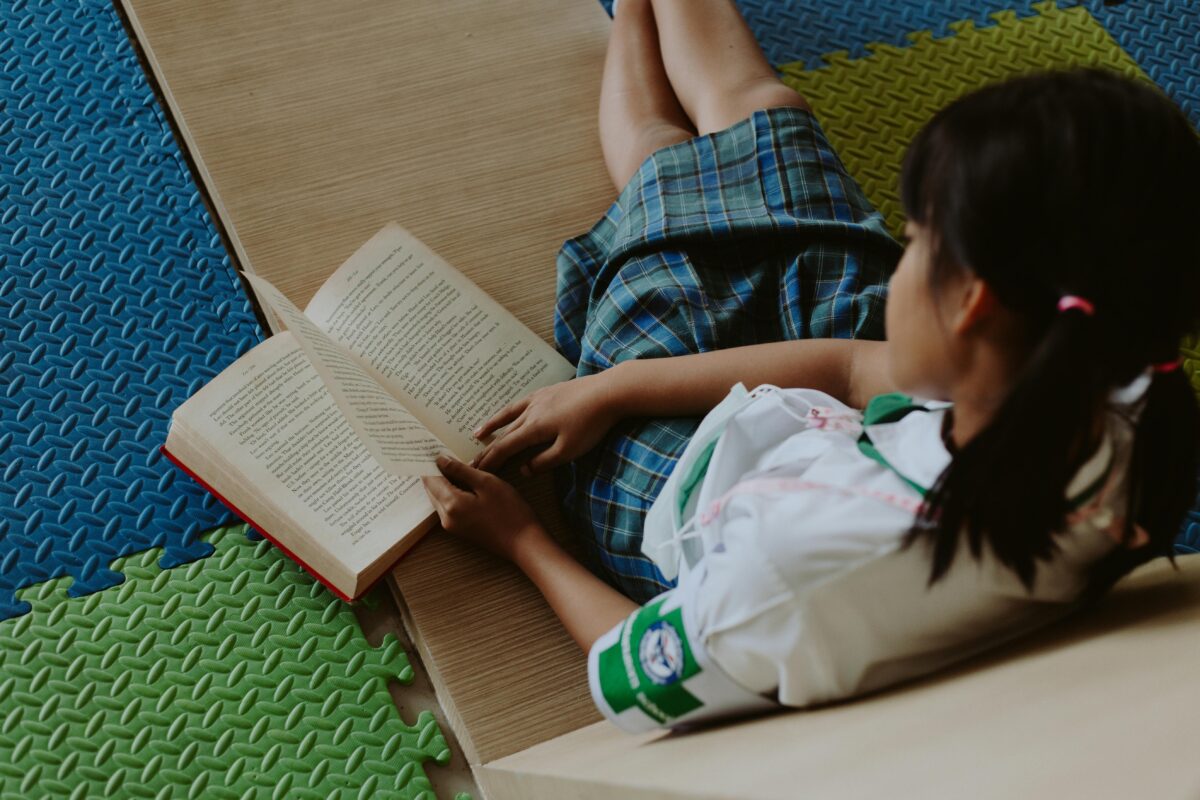
How was your experience studying in Bangladesh? Not only in academics, but life as well.
The education system is good in Bangladesh, but very competitive. It’s not easy to get a full GPA. You need to work hard and get 3.5/4.0 GPA. Our university had students from 19 different countries, many suffering from fighting. For example, we had students from Afghanistan, Pakistan, Syria, Nepal, Bhutan, India, Bangladesh, Myanmar, and Yemen. I really got to learn from and work together with people of different backgrounds.
Outside the university, living wasn’t easy. It’s crowded. If you go outside you must cover your body. You can’t wear pants above the knee. Women must go out in pairs, not alone. Most of the women stayed home and merchants on the street were men. Even the people selling bras and underwear were men. You don’t really see women much besides at the government factory center working sewing jobs. But my school was a women’s university so it was mostly women on campus.
When did you finish your studies?
I graduated in May of 2022. After finishing my studies, I knew Alexa (founder) was looking for someone to help with Daughter’s Rising so she could shift her focuses to Chai Lai Orchid. I especially work for the students. I interview people for scholarship considerations, answer their questions, organize their tuition payments. I also research and collaborate with other organizations in Thailand. Daughters Rising there are three parts: Kid House, Scholarship Program, and Women and Youth Empowerment. That last part is where we do a lot of collaborations.
One we recently did was with PlayOnside. They break gender inequality through sport while trying to prevent drug addiction among the youth. In this area, one can easily find drugs. This organization came from Mae Sok (about 6 hours away) and did a 2-day intensive sport training. They also donated a lot of sports equipment. Now, in the evenings and weekends, men and women in the village will get together and play volleyball or football.
Some other things we’ve done are organizing a vision screening and people will be able to get glasses for free. We collaborated with Shero to conduct a workshop on domestic violence and how to seek legal advisors too. Things like that.
Are you married, Win?
I’m not married. I’m single because I feel like I just want to rely on myself and be supportive to my family and friends. Once I finished my studies I didn’t want to just give my education to a husband. I don’t want to rely on other people. I don’t want the extra stress of a relationship. I have enough stress as it is when it comes to personal, family, social… I don’t want to worry about giving an explanation when I can’t be with them. If I could find a man who can understand this, then sure, I would love it.
I actually asked that because I loved what you had to say the other day about wanting to inspire women. You’re really creating a life for yourself and it’s beautiful.
I believe women aren’t born for domestic works, child bearing, household chores. Men can also take this role. But nowadays, men like that are very rare. They think they need to find money and give money and have the woman take care of the family and cook and clean. I feel like 80% of men think like this. What I mean to say is there are not men and women roles. People are just human.
So, I don’t want to get married. Women also have their development, their future. If we don’t build our own future and just get married and rely on the husband, one day they may leave you or decide they don’t want you. Then what are you to do if you didn’t strive for an education? Women will stay in domestic abuse situations because they feel like they cannot leave. But there are many single moms who are working hard and can give a better future for their kid. I don’t want to depend on a man and I don’t want other women to feel like they have to.
For now I just want to rely on myself, work hard, and take care of my family. My father is 75 years old now and I want to take care of him and my sisters who have been taking care of him all this time. Now I can work so this is my time to give back to my family. I love to take care of people.
What are your dreams for the future?
I want to pursue a masters degree. I feel like the more education I have, the more I can be reliable for my family, for my community, and even for my future. Specifically, I want to study conflict security and development at the University of Sussex in England. I want to study this because my country has been subjected to civil war for more than seven decades. I want to understand the root causation, how we can manage the conflict, and bring a better life. This is my dream. I believe in myself and think I can get the admission. I’m not like 4-years-ago Win. My english is better and I could get a higher score on the language proficiency tests. The difficult thing will be the scholarship. But I will study there. Then I want to come back to Daughters Rising and focus on the development and well-being of minority people.
What makes you happy?
Being helpful to people. I don’t want to just be alone in my room. Even in my free time, after work at 4:00 pm, I like to be productive. I’ll study or come help at the café. I like to sit with people, talk, share opinions and perspectives. It make me happy to be with people and be helpful.
What’s something you’d like people to know?
I want people to not be narrow minded when they don’t understand. For example, on ethnic group might not like another ethnic group because of the stories they’ve heard or pictures they’ve seen on the media, but not everyone is the same. I’m Burmese and we cannot generalize people. Some are good, some are bad. But if you generalize and treat everyone like they are bad, it’s only negative things we bring to those people. You have to understand research by yourself and understand not everyone is like this. I talk about this because belonging to a specific ethnic group, you may lose opportunity or chances because of the place you grew up. When I moved to Thailand, because I am not Karen or Christian, I could not get a job. We cannot generalize.
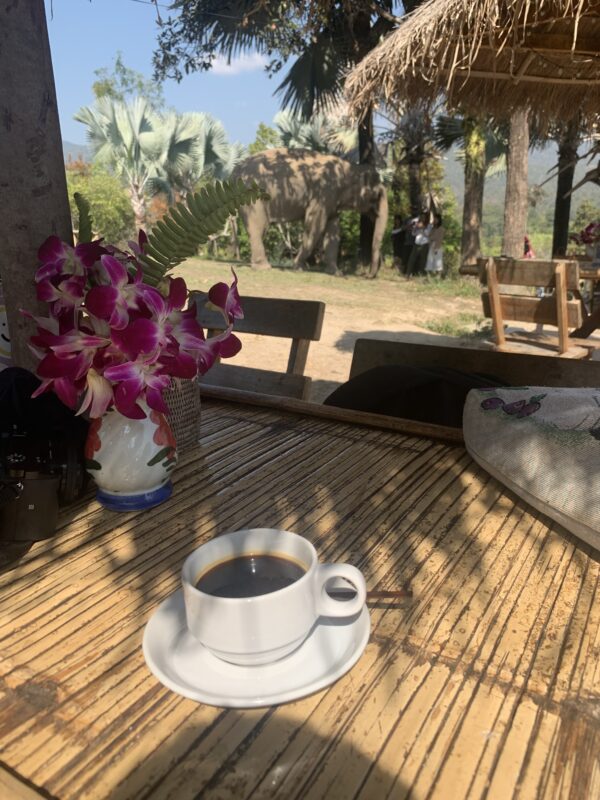
This has been so wonderful and I you’ve said so many great things. You’re really an inspiration and you’ve worked through some really difficult things. You just have a heart of gold, Win. You want to give back and I’m so happy to provide this platform that can Spotlight you because more people need to know about you and your story and will love to hear it. So, thank you so much for sitting down with me today and taking that time.
We are excited to highlight Win and shine that spotlight. We are confident she will be an inspiration to many. For more information, visit Daughters Rising and Chai Lai Orchid.



